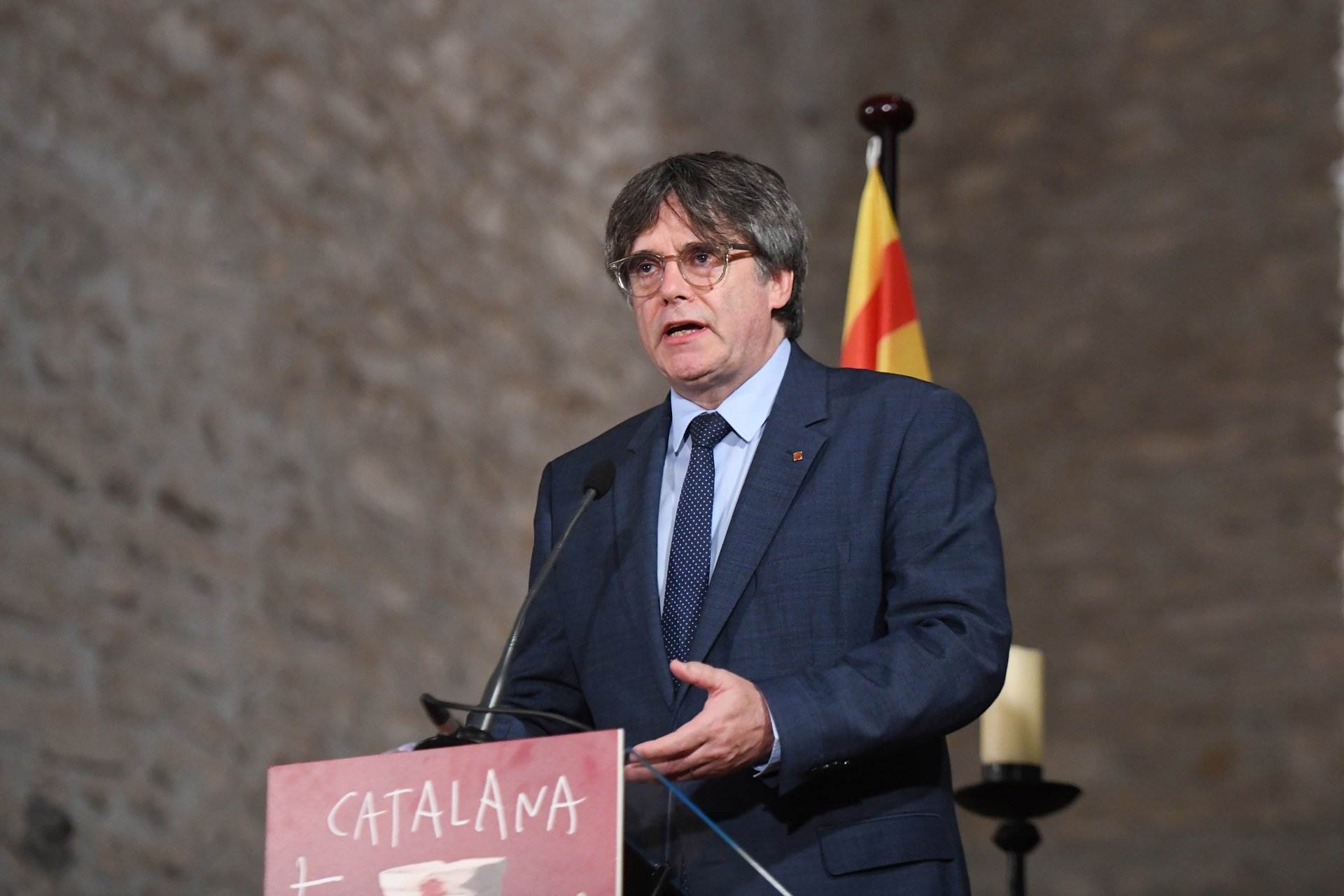The investigating judge of Spain's National Audience court, Manuel García-Castellón, wants to ask the European Court of Justice (ECJ) whether, under EU law, an amnesty could be applied to cases of terrorism, as the EFE agency has reported this Tuesday. This consultation, in the form of a preliminary question, could cause the Democratic Tsunami case to be paralyzed until a response is received from the European court and, therefore, the proposed amnesty law in Spain could not be applied to it. The judge hints at this consultation in the resolution he released this Monday, in which he announces that he is investigating the Catalan president in exile, Carles Puigdemont, and the secretary general of the Catalan Republican Left (ERC), Marta Rovira, for terrorism, along with around a dozen others who are being prosecuted.
It remains to be seen if the law granting an amnesty for Catalan independence process prosecutions, which the Socialists (PSOE) are negotiating with the pro-independence parties, Together for Catalonia (Junts) and ERC, will specify and shield the application of the measure until the Constitutional Court gives its view on the constitutionality of the legislation. In this case, the preliminary question could block the return to Catalonia of president Puigdemont and Rovira, who have both been in exile for six years.
European directive
In the resolution, the judge in the Democratic Tsunami case refers to Directive (EU) 2017/541 of the European Parliament and Council, of March 15th, 2017, relating to the fight against terrorism. It states that "the European regulation on terrorism indicates that the Union is based on the universal values of human dignity, freedom, equality and solidarity and respect for human rights and fundamental freedoms". And it adds that terrorism crimes "represent one of the most serious attacks against democracy and the rule of law, principles that are common to the member states and on which the Union is founded".
The judge refers to one of the articles in the directive which states that "member states will take the necessary measures to ensure that intentional acts considered a crime in the state and that can seriously harm a country, are classified as terrorism when they are committed with one of the purposes listed in the directive: the motives listed include attacks against the life and physical integrity of people, and the destruction of state or public facilities, transport systems or infrastructures".
A death connected to Tsunami?
In the ruling he gave on Monday, judge Garcia-Castellón admits that for now it must be clarified whether the case against the alleged organizers of the Democratic Tsunami protest platform are to be investigated for terrorism, terrorist disorder or a crime of terrorism in concurrence with one of disorder.
The anonymous platform Democratic Tsunami, which appeared on social media in autumn 2019, called for mass demonstrations against the Supreme Court's sentences against the Catalan independence process leaders, and the protests which made the most impact were that which disrupted Barcelona's airport on October 14th 2019, and another several weeks later which blocked traffic between France and Spain on the AP-7 motorway at La Jonquera.
To justify the terrorism charge, the judge has now asked the Civil Guard to investigate whether the man who died of a heart attack at the airport when the October 14th protest was taking place can be linked to those investigated in Tsunami. The public prosecutors serving the National Audience have already announced that they will file an appeal against the judge's latest decision because they consider that the Tsunami case should be limited to the crime of public disorder, now that the Spanish offence of sedition has been repealed.

